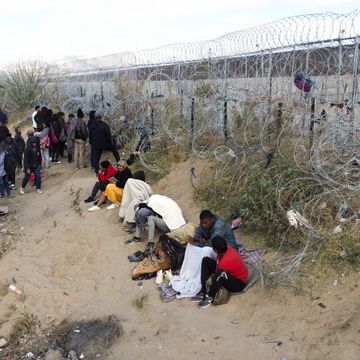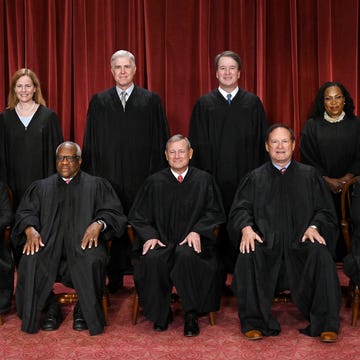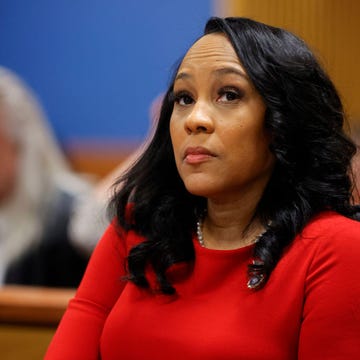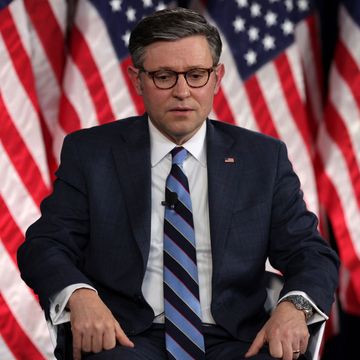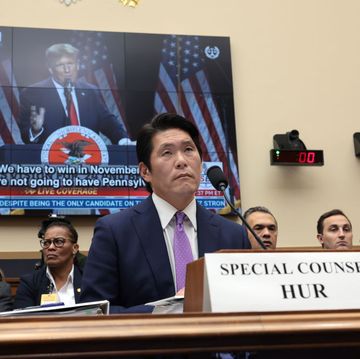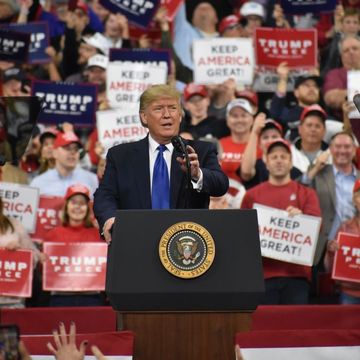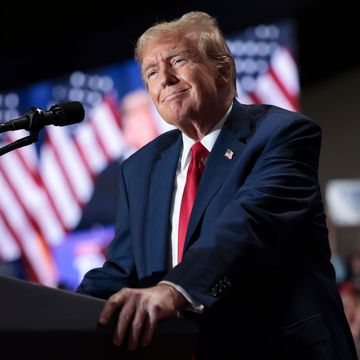I don't mean to pile on that don't-worry-be-happy Politico piece about not panicking over a second El Caudillo del Mar-a-Lago administration, but here's what it says about how the judiciary will protect us:
Instead, the U.S. has overlapping judicial systems and once an appointment is made, it is harder to fully control a judge. U.S. judges also are well compensated, and, in some states, directly elected, further increasing their independence.... If he has the support of Congress, Trump could pack the courts by expanding the number of judges on federal benches and the Supreme Court. But such a move would be too alarming and unlikely to be fully backed by Congress or the Republican establishment. President Franklin D. Roosevelt tried to pack the courts but failed. It is hard to imagine Trump’s Justice Department being able to build in four more years the social and institutional consensus to achieve what FDR failed to do after the New Deal.
The "Republican establishment" couldn't stand up to him when he sent a mob to hang its members. It's supposed to stand up to him on judges who will give it the decisions for which it's been laboring for five decades. And, anyway, the Politico story doesn't take into account the endless ensorcellment the former president* seems to have over judges, a phenomenon of which we had another example on Monday. From The New York Times:
The ruling by a five-judge panel of appellate court judges was a crucial and unexpected victory for the former president, potentially staving off a looming financial disaster. Had the court denied his request — and had he failed to obtain the full bond — Mr. Trump risked losing control over his bank accounts and, eventually, even some of his marquee properties. For now, those dire outcomes might be on hold. If Mr. Trump obtains the smaller bond, it would prevent the New York attorney general’s office, which brought the case accusing him of fraudulently inflating his net worth, from collecting while Mr. Trump appeals the $454 million judgment imposed by a trial judge. The appeal could take months or longer to resolve.
Why not a year? A decade? Infinity? More to the point, why wouldn't the former president* commit his crimes with impunity, knowing that he can delay the legal consequences until he's joined his first wife on the backside of the first tee at Bedminster? It's always worked for him before, and it just worked out again. Time and again, he comes right to the dawning of his beggar's day, only to have some judge or panel of judges step in at the nick of time as though his life were a cheap three-reeler. He's done everything except get himself tied to the railroad tracks.
An appeal bond is a promise from an outside company that it will cover his judgment if he ultimately cannot pay. In order to obtain one, Mr. Trump must pay the bond company a fee and pledge a sizable sum of cash as collateral. Mr. Trump need not turn over the collateral for now, but the bond company would be entitled to collect it if he failed to pay. Mr. Trump’s lawyers had asked the appeals court to either accept a smaller bond or pause the bond requirement altogether. They argued that the court would be likely to overturn the trial judge’s $454 million penalty once it heard the substance of his appeal, contending that it was “grossly disproportionate and unconstitutional.”
(The glass-half-full take on Monday is that Judge Juan Merchan ruled that the Stormy Daniels hush-money case will go to trial as planned on April 15. The former president* wanted to delay that one, too.)
In Robert Bolt's play A Man for All Seasons, Thomas More explains his allegiance to the rule of law as a measure of protection against the irrationality of kings and against the wiles of the devil himself. He describes the law as a tangled jungle through which he knows all the paths.
"The currents and eddies of right and wrong, which you find such plain sailing, I can't navigate. I'm no voyager. But in the thickets of the law, oh, there I'm a forester. I doubt if there's a man alive who could follow me there."
The former president* is not a forester but one of the creatures who live in that forest. He is one of the forest's apex predators. He knows all the best hunting grounds, and his camouflage is impenetrable. People who wander into the forest never see him coming. We've all had a lot of fun mocking the quality of the former president*'s legal help—the Four Seasons landscaping company, Alina Habba—but when it comes to ducking and dodging and hiding, he and his lawyers have a sterling track record. He still has to continue paying off E. Jean Carroll. A measure of justice there, a defeat for the law of the jungle.

Charles P Pierce is the author of four books, most recently Idiot America, and has been a working journalist since 1976. He lives near Boston and has three children.


